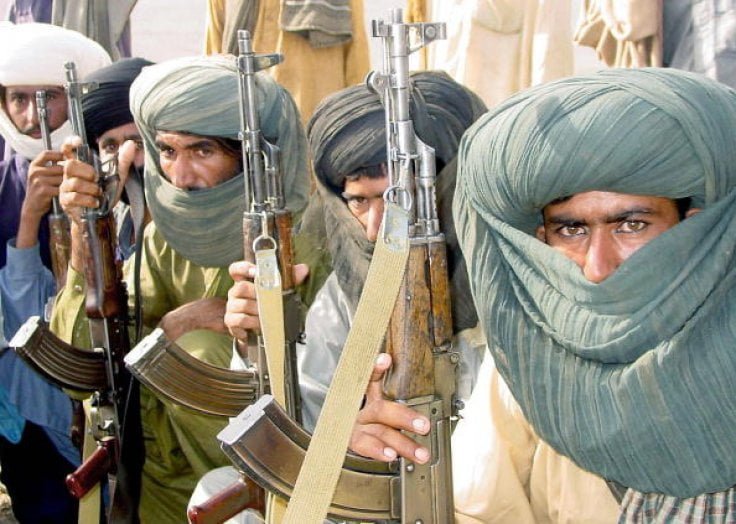Dr Ahsan Baloch
The recent conflict between Israel and Hamas has sent shockwaves through the Middle East, shaking the region’s fragile peace. The United States, concerned about the potential for escalation, has deployed two aircraft carrier strike groups to the eastern Mediterranean and sent additional troops to the region.
This renewed US commitment to the Middle East has caused unease in Turkey and Iran. The Turkish government, led by the Justice and Development Party (AKP), views the US’s unwavering support for Israel as an obstacle to its own efforts to de-escalate the situation. Iranian officials have labeled the US Israel’s “indisputable accomplice” in the “massacre of Gaza’s civilians.”
Beyond their rhetorical criticism of the US’s lack of leadership in pressuring Israel for a ceasefire, Ankara and Tehran are concerned that a stronger US presence in the Middle East could undermine their own interests. The war in Gaza, depending on its duration, could potentially bring Turkey and Iran closer together, given their shared opposition to a US-led regional and world order.
Despite these shared concerns, there are significant limitations to a sustainable alliance between Turkey and Iran. Both countries have ties with Hamas, but of a different nature. Unlike its Western allies, Turkey does not consider Hamas to be a terrorist organization. In 2018, President Recep Tayyip Erdoğan described it as part of the Palestinian resistance defending “the Palestinian homeland against an occupying power.”
Let’s talk about the argument in detail! Hamas’ October 7 attack has rocked the Middle East’s fragile regional order. Fearing that the conflict could spiral into a regional war, the USA has sent two aircraft carrier strike groups to the eastern Mediterranean. Another 900 US troops have been deployed to the US. Central Command area of operations to strengthen defenses.
This apparent resurgence of US commitment to the Middle East has already raised concerns in Turkey and Iran. The leadership of Turkey’s ruling Justice and Development Party (AKP) views the USA’s unwavering support for Israel as a hindrance to its own efforts to calm the situation. Iran’s ruling elites have branded the USA Israel’s “undeniable partner” in the “slaughter of Gaza’s civilians.” Besides their verbal criticism of the absence of American leadership in pushing Israel for a ceasefire, Ankara and Tehran are worried that a stronger US presence in the Middle East is harmful to them. The war in Gaza could, depending on how long it lasts, help bridge the gap between Turkey and Iran, given their common opposition to a US-led regional and world order. Yet there are serious obstacles to a lasting alliance.
Please, subscribe to the monthly magazines of republicpolicy.com
Both Ankara and Tehran have links with Hamas, but of a different kind. Unlike its Western allies, Turkey does not regard Hamas as a terrorist organization. In 2018, President Recep Tayyip Erdoğan called it part of the Palestinian resistance fighting “the Palestinian homeland against an occupying power.” He reiterated this at the AKP’s “Big Palestine Rally” on Oct0ber 28, a day before the Turkish Republic’s centennial.
Ankara considers support for Hamas as part of its policy of defending the Palestinian cause. This policy rests on the AKP leadership’s aspirations for democracy promotion, peace mediation, and leadership of the ummah. To this end, Ankara has offered a safe haven to its members (along with other Muslim Brotherhood-affiliated groups after the Arab uprisings) and supported their organizations operating in Turkey.
However, since 2020 the Turkish government has been careful and distanced itself from Arab Islamists, including Hamas, to help mend relations with both Arab states and Israel. Yet Gaza has exposed the limits of Turkey’s rapprochement efforts, especially with Israel. At the same time, its relations with Hamas also have little value as its ineffective efforts to mediate hostage negotiations show.
Iran provides comprehensive political, economic, and military support to Hamas. Tehran is seemingly trying to capitalize on the changing regional circumstances and the growing anti-Israeli sentiment in the Muslim world sparked by Israel’s disproportionate and indiscriminate attack on Gaza. In his unexpected appearance at the UN General Assembly on October 26, Iranian Foreign Minister Hossein Amir-Abdollahian noted Iran’s readiness, along with Turkey and Qatar, to play a role in securing the release of Hamas’ civilian hostages. During the first week of the Gaza conflict, the presidents and foreign ministers of Iran and Turkey engaged in separate discussions. Amir-Abdollahian visited Turkey on November 1, meeting with President Erdoğan and Foreign Minister Hakan Fidan.
Apart from relations with Hamas, Turkey and Iran have other shared interests. Both are troubled by the American presence in Syria. Ankara sees the USA’s continued support for Kurds in northern Syria as an obstacle to its efforts to prevent Kurdish autonomy under the Democratic Union Party and the People’s Protection Units (YPG), which Turkey views as an extension of the Kurdistan Workers’ Party (PKK). Both the USA and Turkey regard the PKK as a terrorist organization. Recently, Turkish Foreign Minister Fidan justified Ankara’s position on Hamas by referencing the US stance regarding the YPG in Syria.
For Iran, challenging the US in Syria is part of its broader foreign policy goal of “expelling the US from the region.” Tehran views the American efforts to augment its forces around the Syrian-Iraqi border as a threat to its hard-won land access to Syria via Iraq. Iran also believes that the Syrian regime will not be able to re-establish full control of the country if parts remain in external hands.
Despite their differing views on the US presence in Syria, Turkey and Iran have been engaged in diplomatic efforts to mediate between Damascus and Ankara. These efforts have so far been unsuccessful.
Overall, Iranian and Turkish interests seem to be increasingly aligning, particularly in their united front against Israel’s actions toward Hamas and in opposing the resurgence of a US-led regional order. However, their historical competition for strategic dominance in areas like Iraq and Syria, coupled with the distinct forms of revisionism that the AKP and Iranian leadership champion, suggests that any emerging alliance might remain tenuous and susceptible to strains in the mid to long term.
Please, subscribe to the YouTube channel of republicpolicy.com
















